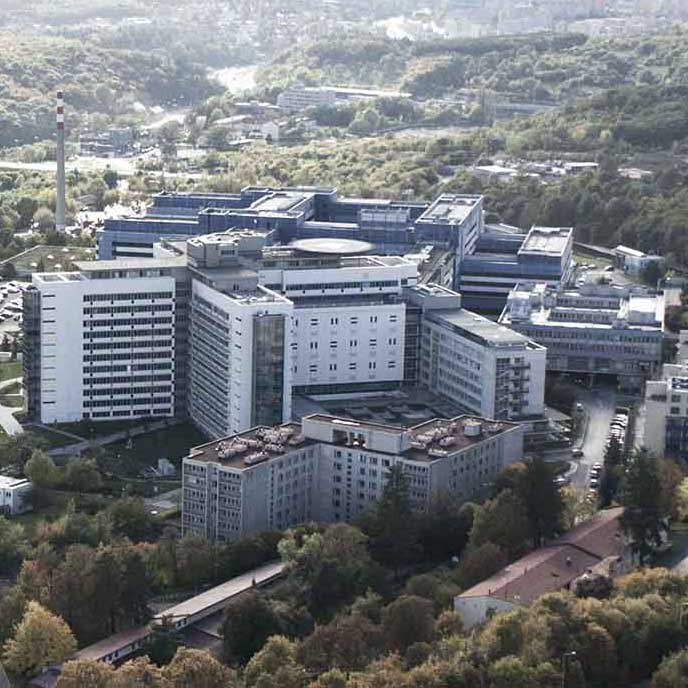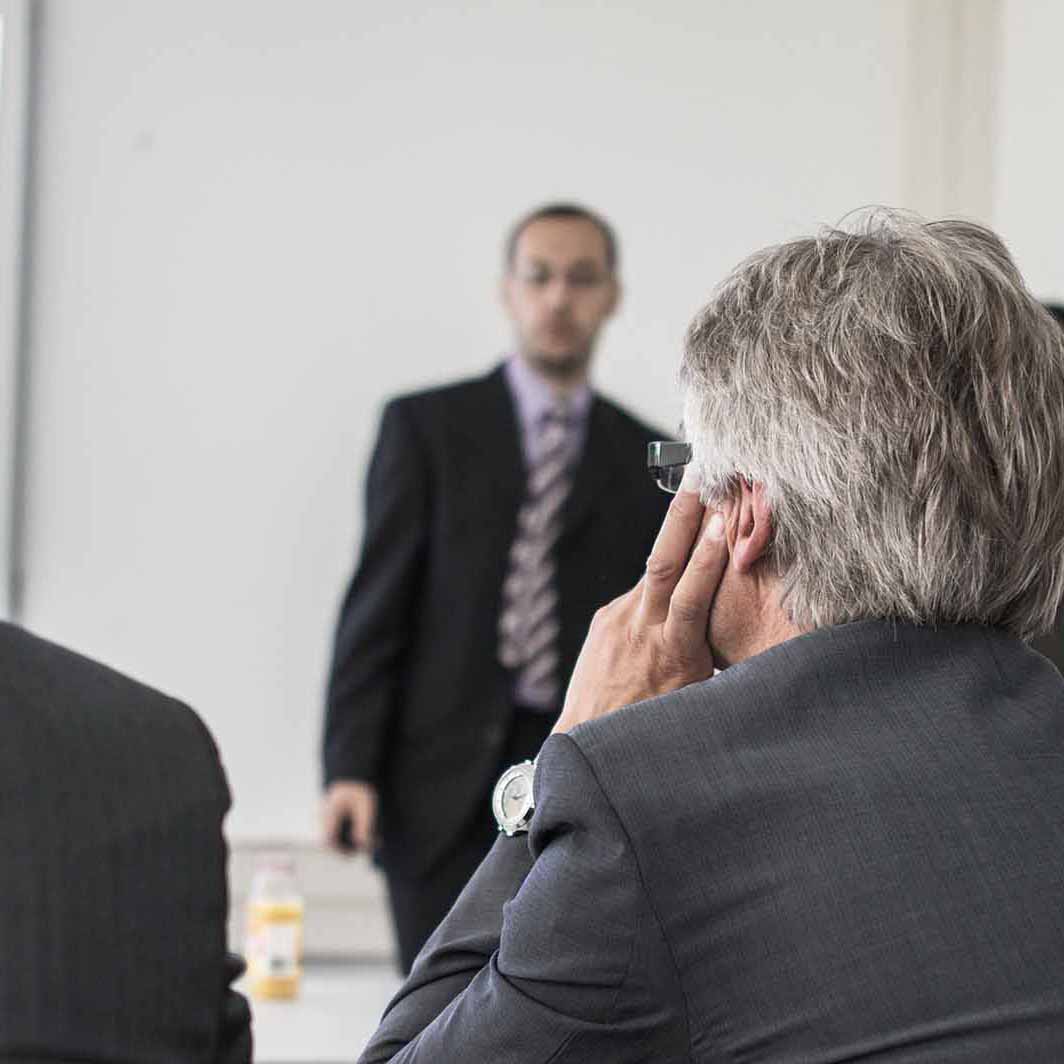Doctoral study programmes provide the highest level of formal education that can be achieved in the Czech Republic. The Charles University Second Faculty of Medicine offers doctoral study programmes without specialization in full-time and combined study form, in Czech and English, not only to graduates of a master's degree in medicine or related natural sciences, but also to graduates of master's degree programmes of other universities, including engineering-type studies in the Czech Republic and abroad. The study is focused on scientific research and independent creative work in the field of research or development, the standard period of study is four years, the maximum period is eight years.
For applicants
Admissions Guide
For PhD students

PhD Essentials

Instructions and Study Manuals

State Doctoral Examination, Deadlines and Dates

Dissertation Defense, Deadlines and Dates

Forms and Patterns

For supervisors

Supervisors
Doctoral study programmes offer the highest formal education that can be achieved in the Czech Republic. The conditions for doctoral studies at Charles University are laid down by The Higher Educational Act No. 111/1998 Coll. (§ 47), the Code of Study and Examination Charles University and the Dean's Provision No. 2/2024.
The Second Faculty of Medicine provides doctoral studies together with the First Faculty of Medicine, the Third Faculty of Medicine, the Faculty of Science, the Faculty of Physical Education and Sports, some Institutes of the Czech Academy of Sciences oriented to biomedicine, and the departmental research institutes of the Ministry of Health of the Czech Republic.
Study takes place in full-time and part-time (combined) forms. Distance studies are not accredited at the Second Faculty of Medicine CU. The standard study period for both full-time and part-time forms is four years. The maximum study period is eight years. All doctoral study programmes are without specialisations.
The main characteristic of doctoral studies is the individualised form and independent scientific activity in the chosen study programme in cooperation with an experienced supervisor under the supervision of the Subject Area Board (SAB). This form of study prepares students not only for further scientific careers, but also for highly qualified work in a wide range of other professions. The study follows an Individual Study Plan (ISP) under the guidance of a supervisor or, where appropriate, an advisor, and is duly completed by the State doctoral examination (SDE) and the defence of the dissertation. Graduates are awarded the degree of "Doctor" (abbreviated as Ph.D., indicated after the name).
To study in doctoral study programmes, applicants are admitted on the basis of an admission procedure, which for individual study programmes takes place at the faculty during a period announced by the rector, usually in June. The faculty announces the opening of the admission procedure publicly at least four months before the deadline for applications on its official notice board and at the same time notifies the Rector's Office of the Charles University.
Admission examinations, in the form of an interview, take place before examination boards, which are appointed by the dean of the faculty on the proposal of the Chairman of the SAB, usually from among members of the relevant SAB. The Chairman of the board is usually the Chairman of the SAB. The admission examination also includes a discussion of the proposed dissertation project and the conditions enabling its solution. For the admission interview, the participation of the applicant's proposed supervisor is appropriate (see the current list of all active supervisors at Second Faculty of Medicine). Further information on doctoral studies, supervisors and SABs can be found in the Manual for Doctoral Study.
For students of doctoral study programmes in the full-time form of study, in cooperation with the Motol University Hospital in a selection procedure is announced for the combined programme of scientific and professional education, the so-called “M.D. Ph.D. programme” (see section What exactly does “M.D. Ph.D. programme” mean). The aim of this activity is to create the conditions for the implementation of quality research at the clinical departments of hospitals in medical areas that are considered a priority. The admission criteria are published on the Motol University Hospital website.
The general description of the doctoral study programme ISP is identical for all students and contains a basic list of study obligations and other requirements for creative activity and completion of internships, which are further specified by the student's ISP, a proposal of the topic of the dissertation and data essential for the state doctoral examination. The ISP may contain study obligations, which are also implemented at other participating faculties. The degree programme guarantor is an academic employee of one of the participating faculties, who is responsible for the quality and for the proper implementation of the study programme guaranteed by him. The members of the SAB are appointed and dismissed by the rector on a proposal from the deans of the participating faculties submitted to him by mutual agreement and after the comments of the relevant scientific boards. Cooperation within the organisation of the study of doctoral study programmes accredited at several faculties of Charles University is regulated by Rector’s Directive No. 26/2019.
The faculty at which the student is enrolled in the study is responsible for the correct organisation of his/her study. The student is obliged to follow the regulations of the faculty at which he/she is enrolled in the study. Further information about the specific doctoral study programme accredited at Second Faculty of Medicine CU is available here.
Studies of foreign nationals
The student of a doctoral study programme can be a national of any country, if he or she meets the conditions prescribed for the chosen form of study. Studying in the Czech language is free, there is an annual fee of 1 000 CZK for programmes taught in English. The applicant’s state of health must meet the requirements concerning foreign nationals permitted long-term residence in the Czech Republic. Foreign applicants are recommended to learn the basics of Czech necessary for communication with patients in clinical workplaces. If the applicant is not a graduate of a university within the EU or there is no agreement between the respective country and the Czech Republic on mutual recognition of a higher education diploma, it is necessary to submit a certificate of equivalence of their diploma (see “Information about the recognition of foreign diplomas and degrees”).


